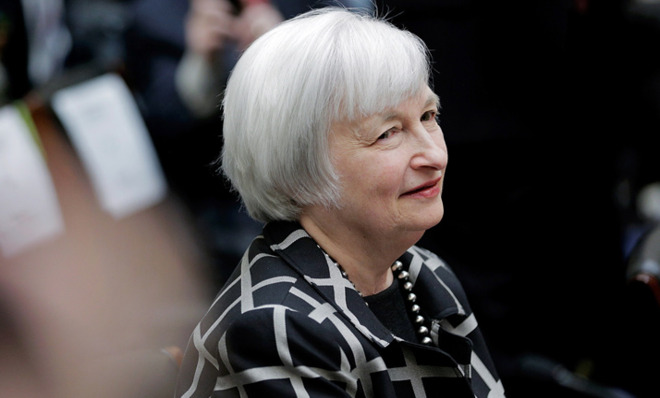There's no economic boost from raising the debt ceiling
At least not this time...

A free daily email with the biggest news stories of the day – and the best features from TheWeek.com
You are now subscribed
Your newsletter sign-up was successful

A day after House Republicans passed a bill to raise the debt ceiling after abandoned their effort to attach conditions to the measure, the Senate passed a similar resolution, guaranteeing an end to such battles for at least a year.
Even a few months ago, the news that such a deal had been reached would have had economists rejoicing, but having watched Congress walk up to the brink multiple times in recent years only to step back at the last minute seems to have dulled sensitivity to debt limit threats.
Stanford economics professor Nicholas Bloom, whose work on economic policy uncertainty includes helping create an uncertainty index, said the expectation that the debt limit would be raised was already baked into assumptions about short-term economic growth.
The Week
Escape your echo chamber. Get the facts behind the news, plus analysis from multiple perspectives.

Sign up for The Week's Free Newsletters
From our morning news briefing to a weekly Good News Newsletter, get the best of The Week delivered directly to your inbox.
From our morning news briefing to a weekly Good News Newsletter, get the best of The Week delivered directly to your inbox.
"I don't think there's a lot of upside going forward" as a result of the debt limit deal, he said. "There's much less uncertainty left around."
In fact, the Economic Policy Uncertainty Index, which is updated every morning, barely budged between Tuesday morning, when the prospects for a deal were unclear and Wednesday, when it became clear that a debt ceiling increase of one year was bound for President Obama's desk.
That doesn't mean that people weren't warning of disastrous uncertainty in the run-up to the debt limit deal. When leading business trade groups sent a letter to Congress late last month urging lawmakers to pass a clean debt limit bill, one of the key reasons they cited was the uncertainty constant battles over the debt limit have caused.
"To the extent that this was baked in I think it was because we saw the political fallout from the government shutdown of last year," said Anthony Cimino, vice president for government affairs at the Financial Services Roundtable. However, he added, business groups are breathing somewhat easier today, "because it is never clear how these debates will unfold."
A free daily email with the biggest news stories of the day – and the best features from TheWeek.com
However, at this point it may have become more of a standard talking point than a real economic concern. Raising the debt limit is now seen not as good news in itself, but more as an absence of bad news.
"We got a small piece of good governance in the fact that we're not going to have a fight over the debt ceiling," said Chad Stone, chief economist for the Center on Budget and Policy Priorities:
The debt limit never should have been a source of uncertainty in the recovery because it's a false fight. The fact that it's not in the way anymore is a good thing, but it doesn't mean there's smooth sailing.
I don't think removal of the debt ceiling changes the fact that the Congressional Budget Office thinks we're not going to be back to full employment until 2017. It doesn't change the fact that the Fed, as Janet Yellen said yesterday, still has to focus on unemployment.
More from The Fiscal Times...
-
 Political cartoons for February 16
Political cartoons for February 16Cartoons Monday’s political cartoons include President's Day, a valentine from the Epstein files, and more
-
 Regent Hong Kong: a tranquil haven with a prime waterfront spot
Regent Hong Kong: a tranquil haven with a prime waterfront spotThe Week Recommends The trendy hotel recently underwent an extensive two-year revamp
-
 The problem with diagnosing profound autism
The problem with diagnosing profound autismThe Explainer Experts are reconsidering the idea of autism as a spectrum, which could impact diagnoses and policy making for the condition